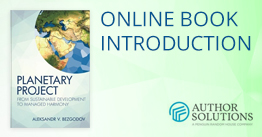Institutional framework of planetary integration
Several social-historical phenomena have already emerged as established, full-fledged, generally recognised institutions, which can be viewed as platforms of natural integration of humanity; and which, by the way, can be boldly attributed to globalisation! Conditionally, they can be divided into political-legal, economic, infrastructural-technological, and cultural. In any case, they are all products of modern civilisation, and results of the best achievements of previous civilisations. Each of these sustainable phenomena and processes, institutes and practices, which have already become in essence global integration platforms, deserves a brief overview.
(1) Universal human values and human rights
The image of a united humanity has become a fragment of the civilised nations’ cultural code, and found a legitimate correlation to the universal human values category. Universal human values include inalienable natural needs, rights and weal of a person as a living, rational and spiritual being living in the natural and human world. The concept of universal human values has crystallised from a diverse mass of human historical experience, despite its paradoxical discreteness and, at times, often mutually exclusive layers of meaning. In social practice, universal human values are objectified in the institute of human rights and partly of international legal norms.
(2) Global social institutions
Global social institutions not only exist, but also enjoy the world’s rightful respect. They take an active part in developing, passing and supervising very important and large-scale solutions concerning entire nations and countries, and the world community, but they are very far from completing their mission in its full scope and meaning.
(3) Global business
Global business grew out of the age of great geographic discoveries, periods of scientific-technical progress and industrial revolutions. By the 19th century a global business prototype had emerged in the form of expanding and institutionalising intercontinental trade, it became the world’s leading economic project; while in the 21st century it is a no-alternative reality whose key figures are transnational corporations, international trade and financial-industrial institutions.
The nature of global business is that it practically fails to recognise borders and sovereignties. With the current state of global transportation and information and communication networks, capital flows to countries that have favourable business climate and the biggest profit potential. Nevertheless, global capital mobility and business processes face resistance from the instability of the planet’s macroeconomic and macro-social processes. This already concerns politics. Yet, it should be admitted that global business, the global economy, trade, production forces dynamics, and production and consumption standardisation are now the most objective part of the human integration basis.
(4) The Internet: global communications and the virtual world
The Internet is the global information and communication network. It has, perhaps, the unspoken status of being the most useful modern product; at any rate, both globalisation supporters and opponents make equal use of it. Some people believe that the World Wide Web is an ideal planetary world model or, perhaps, in some ways, its invariant. The virtual space is said to be the image of an expanding galaxy. In any case, the significance of the global web cannot be overestimated: as a driver of an information revolution, it transforms the very principles of social organisation, the structure and structural-functional mechanisms of the life of society.
Indeed, the Internet has made this world more compact and open, and people more mobile and universal. The main thing is that it has greatly increased the volume and accessibility of global competences, knowledge and needs expanding the field of value, cognitive and aesthetic elements of the current worldview. At the level of experience constants, communicated knowledge and skills, the Internet has made different cultural languages closer to each other: a common cultural code is crystallising in the virtual reality of the global human universe.
(5) Unity of the technosphere
Despite the fact that industrial and post-industrial society types co-exist in the modern world, we can, albeit conditionally, talk about the unity of the technosphere as a material basis of modern civilisation. At least, we can talk about a family of the following interconnected global technological systems (infrastructures) organised by single scientific-methodological and management principles: communication, energy, transport and logistics, as well as space systems.
Therefore, it is fair to say that at the beginning of the 21st century, there is an imminent global need of supra-national and supra-political human integration. This need is both a forced one in the face of global threats and risks and historically natural and evolutionary, because humanity is ready and capable of becoming one as a planetary phenomenon. Global human integration is so obviously necessary that it must be a criterion of social, civilisation and humanistic maturity of an individual, an elite society and a social institution. Global human integration, just as globalisation and global problems, affects both society as a whole and its individual members.









